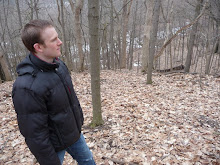
As I travel up and the main island of Japan, I've been offering to help out in whatever ministries the friends I visit are involved in. Up until now, this has been limited to talking with church members, hanging out with youth, and occasionally giving my testimony. However, my friend Madoka's church takes their Bible studies very seriously, and right from the beginning I've had the opportunity to help out, not only with fellowship, but also teaching a Bible study and even teaching and encouraging some of the leaders. These opportunities come at most a day in advance, so I've been kept on my toes the whole time.
The most unexpected (and by far the most fun) opportunity was to teach Greek to the ladies' prayer group. This group of about 20 women meets weekly for prayer and a lengthy Bible study, and when they found out that a "Greek professor from America's finest Evangelical seminary" was in their midst, I was quickly recruited to come and join them. Madoka (also a Trinity grad) had taught some of them the alphabet and a few words during a summer camp a year or so ago, and apparently some of the ladies (and even several children) became quite enthusiastic about keeping up the study on their own. I was able to dig up a few of my old Greek handouts and translate them into Japanese, and together we translated a short passage from Greek into Japanese, and discussing the nuances and exegetical significance of the grammar. They all took this quite seriously, and you'll notice in the photo above that they even had me wear two microphones so that both the audio and video of this historic lecture could be preserved for the posterity of the church.

I'm thrilled to see a church that is so excited about God's word that they're willing to commit this much time and energy into study, and I encouraged them to keep up their study of the Bible, as well as of the Greek language. At the same time, I also discussed with them some of the theological implications of the New Testament's being written in Greek. Namely, that God spoke to real people in the everyday language of an actual era of history. Our God is a God who works in human history, and comes to us at our level. The curse of Babel, unlike the other punishments and curses in the Bible, is never undone. Rather, the various languages of the world are blessed at Pentecost and preserved even into eternity (Rev. 7:9). Though other religions require that we go to where God is, whether by good works or religious rites or even a change in culture and language, the heart of the gospel is just the opposite. Our God came to us where we are--actually in space time and history. He meets us as we are, and then from there, by the grace of the cross, he transforms us into what we ought to be. Thus, even the study of Greek reminds us of the kind of God we worship--one who translated himself into flesh to dwell among us--and of the privilege we have of worshiping him in our mother tongues for all eternity.

"Greek professor from America's finest Evangelical seminary"
ReplyDeleteThere went my tea!
I'm glad they got the chance to have such a gifted and sympathetic teacher!
I'm so excited for you Jeremy! It's great to hear how things are going for you while in Japan. God is really blessing so many of your opportunities.
ReplyDelete